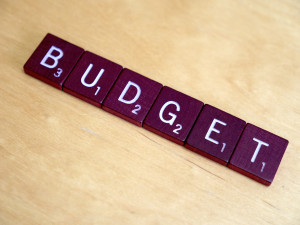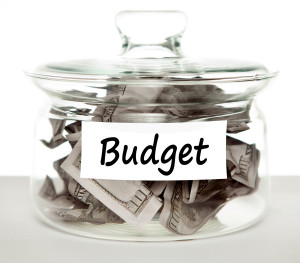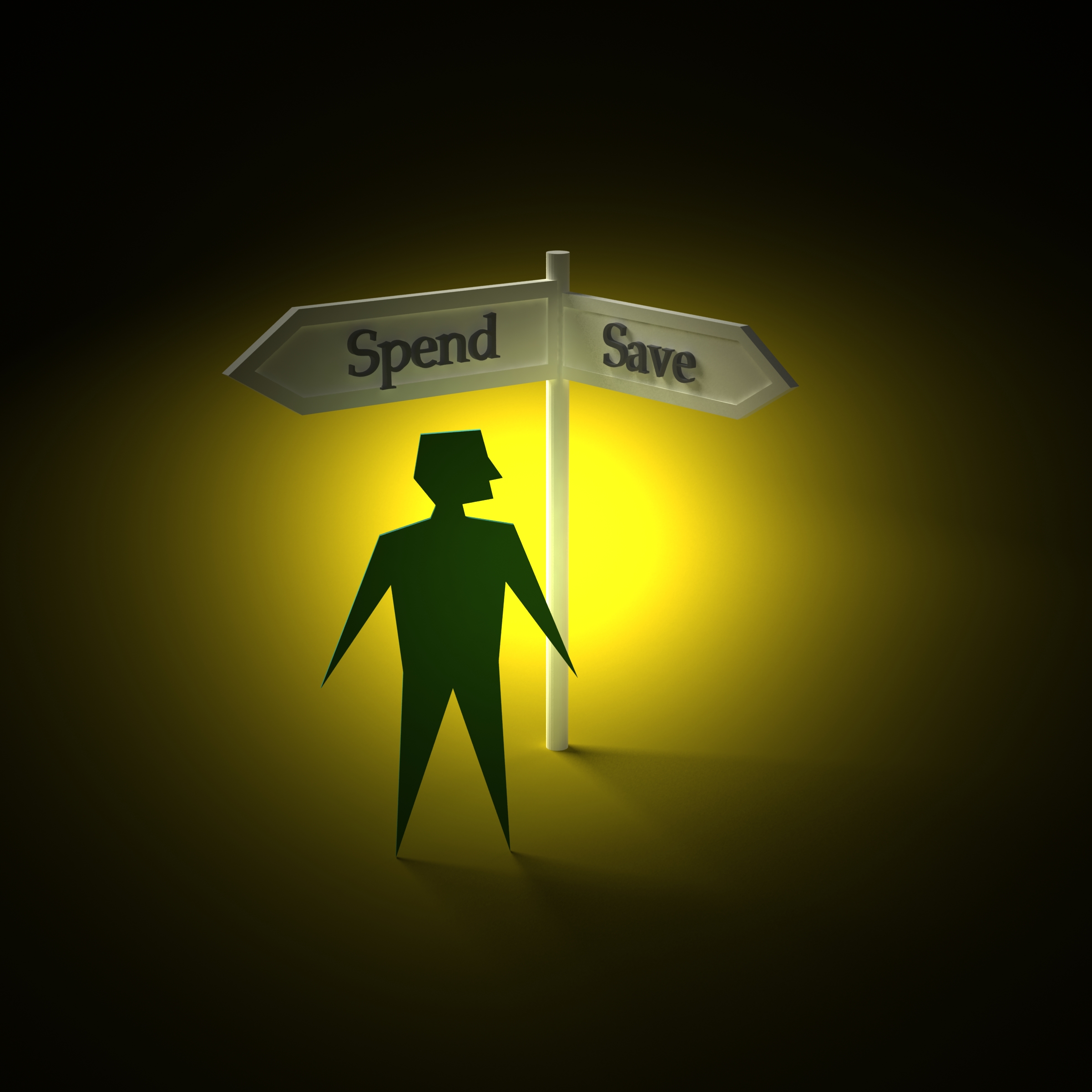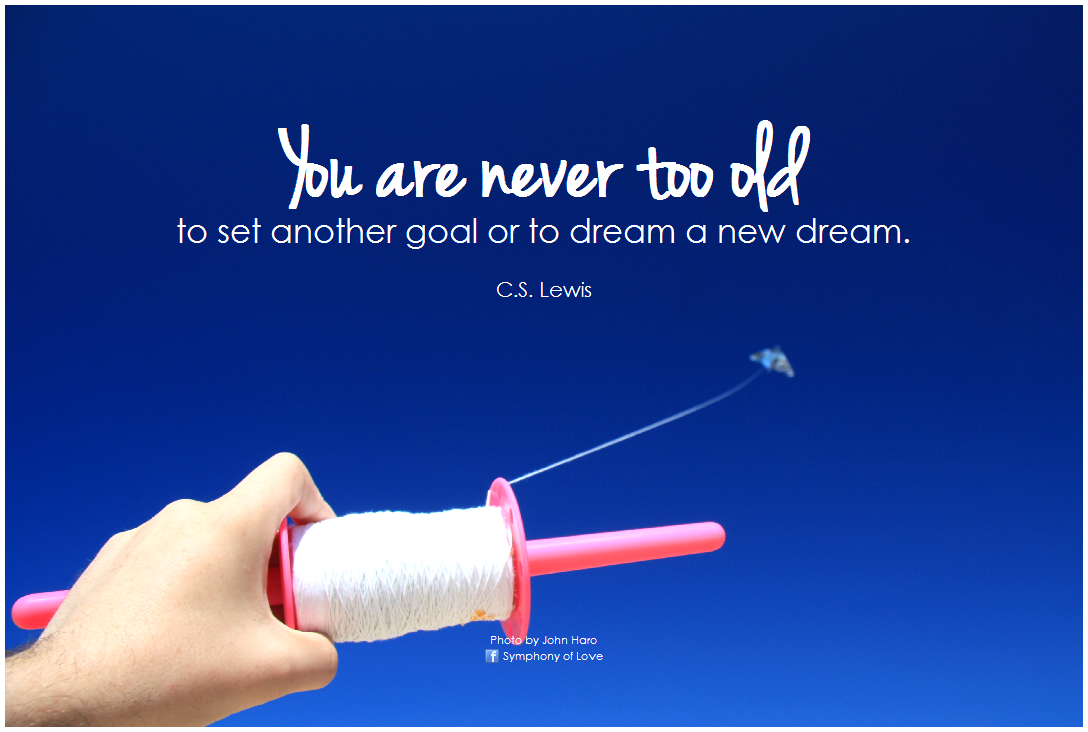Revisit your Budget
Revisit your Budget
 Budgets are living, breathing, documents. They will need to change as your lifestyle changes. These changes need to be done intentionally and not accidentally. How do you do this with your budget?
Budgets are living, breathing, documents. They will need to change as your lifestyle changes. These changes need to be done intentionally and not accidentally. How do you do this with your budget?
Pay attention to it for starters. The biggest mistake people make is to ignore the budget they have just put together. It is easy to assume that everything will take care of itself now that your monster spread sheet is put together or that you have set everything up on mint.com. But, alas, it simply isn’t that easy.
I will let you in on something, even if you used my budget template as I suggested, you forgot something on your budget. There is a bill that will come due that wasn’t part of your initial tracking period. That is OK. You will just need to adjust your budget now. Is it ok to change your budget? If it is intentional, absolutely. Budgets change, the problem arise when you simply overspend, without planning. You will need to adjust your budget several times until you have it to a good place and then you will, hopefully, get a raise or something else will change in your financial life that will require you to change or even rewrite your budget.
Understanding that your budget is a living document will help you not stress out when things come up that you require you to make adjustments.
- What could I have forgotten?
- Did you put money aside for the Holidays? That is one of the biggest times to destroy your budget. Save money for travel, gifts and extra workout equipment to get rid of those holiday meals meals.
- Bills that don’t come due every month; Car insurance, homeowners insurance; subscription fees.
- Do you have an emergency fund? Cars need repairs, hot water tanks blow up. If you don’t want to blow your budget you need to have money put aside for these things, they will happen.
- It also helps to give yourself an allowance so you have some money to spend when you want something. Leaving yourself out of the budget will lead to burnout.
- What else can you do to improve your budget?
You will need to make changes to your budget, it is inevitable. Make them carefully and deliberately, not during emotionally charged moments. Don’t sweat it, life changes, change with it.
Image by lendingmemo
Create your debt snowball
 Create your debt snowball
Create your debt snowball
Now that you have created a little wiggle room in your budget you can start making a move to get your debt paid off. We are going to use a popular method among personal finance writers, including Dave Ramsey. It is called the debt snowball because as you pay off debt you use the former payment for that debt to pay off your next debt gaining momentum as you roll down your freedom mountain.
Let’s look back at your debt records and set up your snowball. First you need to prioritize your debts in the order you will pay them off. There are two main schools of thought on this issue. Do you pay them off in the order that gives you a better emotional advantage or the better mathematical advantage.
If you pay off your highest interest rate debts first, mathematically you will pay less in interest, but it may be a long time until you clear that hurdle of paying off your first debt. If you pay off your smallest debt first you will get the emotional push of success but you will pay more in interest in the long run. Neither of these is the absolute right way. After all, if you are going to fail without the emotional push it doesn’t matter how much more money you can save by doing it the other way. Decide which way works best for you.
If you are a numbers nerd, like me, or just want to see a visual representation of how the snowball works then take a look at the template over at Vertex42. I was going to create my own but theirs is everything I would have wanted to create. They also have video instructions to help you along the way.
Continue to pay all of your minimum payments on all of your debts. Take the extra money in your budget and put it toward paying off your debt. Then when that first debt is paid off take all of that money (the minimum and extra) and apply it to the next payment. Given enough time you will pay off your debt.
Image by BeverlyLR
Create Wiggle Room in your Budget
 Creating wiggle room in your budget.
Creating wiggle room in your budget.
So you have just created your budget and you now you want to get started in paying off your debt, but you don’t think you have enough extra money to really make a difference. Well, this step is about finding ways to create some wiggle room in your budget. Doing this requires dedication and sacrifice.
Here are some ideas; your goal in this step is to try at least 5. The more effort you put into this step the faster it will be to pay off your debt.
1. Get more in your paycheck instead of in your refund. By using this IRS calculator you can find the real amount you should have withheld from your paycheck. Use the extra money to start paying off your debt.
2. Take the Chicken Challenge – The Chicken Challenge was coined by the Cord Killers Podcast. Call your cable company and tell them you want to cancel your cable. Worst case is you actually cancel it and live off netflix or hulu, more than likely they will cut your bill.
3. Take a look at your cell phone bill, look at other carriers like republic, or PCS wireless or any other smaller carriers that may give you a smaller bill each month.
4. Look over this list of 100+ ways to save money.
5. Get creative, if you are serious about getting your financial life under control then you may have to do things you have never done and make sacrifices you have never made to be successful.
6. Stop eating out for a month
7. Suspend any other subscriptions that are costing you money each month.
Image by svilen001
Create a budget
 A budget sounds scary (or boring), but it is just a tool used for making decisions on how to spend your money when your emotions are not running crazy. It is like a map on your journey to financial improvement. If you would like more details on why you need a budget check out this article.
A budget sounds scary (or boring), but it is just a tool used for making decisions on how to spend your money when your emotions are not running crazy. It is like a map on your journey to financial improvement. If you would like more details on why you need a budget check out this article.
If you haven’t go ahead and read it now. Now, the question is “how do I create a budget?” If you have never actually had a written budget before then figuring out how to create a budget can feel confusing, but it doesn’t have to be.
When I talk with people one on one I usually recommend one or two methods depending on the preference of the individual. I will talk through both here.
Create a budget on Paper.
- Gather up all of your bills for the past month.
- If you don’t have them from last month then keep them when they come this month.
- Track every penny you spend.
- Do it in a notebook, or keep receipts of your spending or use one debit card for all spending then use the statement to actually make your budget you won’t have to guess.
- Put it down on paper.
- If you don’t want to create your own there are plenty of places to find budget templates. However, searching those out may lead to more confusion so here is a simple budget template to get you started.
- Fill in the green spaces that apply to you and the yellow column on the right will tell you what percentage of your income you are spending on any particular category.
- You may not need every single line so only use what suits you. I actually find it most useful to keep categories as broad as possible. But, you need to do what is right for you and knowing that takes experience, so play with it.
- My wife and I have gone through dozens of forms of budgets in our time of trying to organize our finances.
Create a budget with Mint.
- Mint is a free online personal finance program. (Also available on mobile platforms) It is owned by Intuit the same company that owns Quicken and many other programs. They have been in the business for a long time and they are very reputable and secure.
- Sign up for an account on mint.com
- Register your primary spending accounts
- Mint will automatically pull in your all of your account activity and automatically categorize it for you. (Watch out they are not always accurate)
- Use Mints built in budgeting feature to set up the categories for your spending. Mint will let you know how much you have left in every category. You can even set up a alerts to let you know.
Having a budget down on paper, even digital paper is the first step in getting your personal finances under control. There is something about actually writing things down that acts as a commitment device. But, understand that a budget isn’t set in stone. Month to month things may vary and you will have to account for that. For the first few months you should keep a close eye on things and maybe make adjustments as needed. You may have forgotten about something that you will need to adjust for. This is not a “Set it and forget it” kind of thing.
Image by Tax Credits
Gather your debt records
 Your third step in the process is to gather your debt records. Student loans, credit card statements, car loan statement. Statements from all the debts you carry.
Your third step in the process is to gather your debt records. Student loans, credit card statements, car loan statement. Statements from all the debts you carry.
Putting all of this information in one place can be a little scary if you have never done the calculation before or are unsure of your current financial situation. The easiest way to conquer the fear of the unknown is to know it. Think of it this way, before your GPS will tell you which way to go it has to find your current location. This process is finding your current location so you can make the correct turns go forward.
There is information you need to know from each of your debt records
Balance
The total amount of money you owe on the debt.
Interest Rate
The cost of borrowing the money. This is usually listed as “interest rate” or “APR” which stands for Annual percentage rate.
Monthly Minimum Payment
How much you have to pay each month to not be delinquent on your debt. Keep in mind making minimum payments only it will take up to 20 years to pay off a credit card.
You can use this handy Google doc if you like.
All of this information will become very important as we move forward in getting rid of our debts.
Image by Kantamate555
Track your Spending
Track your spending
This is part two in a series on how to arrange your finances. If you haven’t already read part 1 to get off on the right track.
When you track your spending it will do a few things for you. It will help you determine where your money is really going each month. Many times we think we know how we are spending our money, but forget about little purchases we make along the way; nickle and diming your self, so to speak.
Secondly, you will actually spend your money more wisely. There is something about tracking spending that will make you think about purchases. It causes you to make more deliberate decisions when you are spending your money.
There are a couple of different ways to go about this. Feel free to use which ever one works for you. The importance is not in how you get it done but simply that you get it done.
I suggest signing up for mint.com or a similar service. This will import your records from your checking account and help you to categorize them appropriately. Although watch out, they are not always right, or the categories may be too broad.
Secondly, you can track your spending by hand. Keep receipts for everything you spend and write it all down. This way requires a bit more work on your end, but will help you more in controlling your spending, who wants to manually write down junk spending?
Once you have tracked your money for a month, you should have captured a majority of your spending and have a good idea of where you are starting from. It will make the following steps more easy and accurate.
Image by Ken Teegardin
New Year Goals
New Year Goals
First, let’s talk about why you are taking this course? Why do you want to get your finances under control and pay off debt. Having these reasons straight in your mind can help you succeed when the going gets tough.
These reasons are very important because they will need to be your motivation when things get tough. There will come a time in this journey when you are going to want to give up because things just aren’t fun and exciting anymore. Because things aren’t as easy as you thought they would be or when things aren’t moving as fast as you thought or when you hit a major setback.
 Do you want more money when you retire?
Do you want more money when you retire?
Do you want be a better steward of the gifts God has given you?
Do you want to save up for your family?
Do you want to get out from under the crushing weight of debt so you can feel some freedom?
Do you want to get your finances under control
Seek out every reason you can, intellectual, scriptural, emotional and write full sentences about why you want to take this journey. Make these personal reasons that will mean something to you as you move through the process of getting debt under control.
Take your time on this step, it would be easy to cast it aside and just jot down a few things, but the more time you spend on your foundation the better off you will be down the line. You will refer to this down the road when you need motivation.
This is the first in a series designed to help you start the New Year off right. Make sure you don’t miss out on any pieces of the series subscribe to our site by email.
Image by BK
New year budget
 It is time for a new year budget; A lot of folks choose to use the new year as a starting point to achieve goals they have put off all year. If your goal is to start being a better steward of your money, get out of debt and take control of your financial life then I have good news. Starting next week I am going to start publishing a course on how to do exactly that. It will include step by step instructions on how to do just that. You can follow the course on this site or subscribe to the email list below to ensure you don’t miss anything.
It is time for a new year budget; A lot of folks choose to use the new year as a starting point to achieve goals they have put off all year. If your goal is to start being a better steward of your money, get out of debt and take control of your financial life then I have good news. Starting next week I am going to start publishing a course on how to do exactly that. It will include step by step instructions on how to do just that. You can follow the course on this site or subscribe to the email list below to ensure you don’t miss anything.
The course will cover:
- Why you want to be a good steward of your money
- Setting your personal goals
- Creating a budget to help get you there
- Overcoming obstacles that WILL come up
- A lot more…
Sign up for our mailing list so you don’t miss a thing.
Image by sally_12
Stewardship and the Gospel
Stewardship and the Gospel
 Writing continuously about personal finance can become boring after a while, much like stewardship itself. We experience a diminishing return of excitement after the initial eye opening experience. So, I feel like I am writing the same things over and over. Anyone who has been keeping up on their stewardship probably feels like they have been doing the same thing over and over again. There just isn’t much new and exciting.
Writing continuously about personal finance can become boring after a while, much like stewardship itself. We experience a diminishing return of excitement after the initial eye opening experience. So, I feel like I am writing the same things over and over. Anyone who has been keeping up on their stewardship probably feels like they have been doing the same thing over and over again. There just isn’t much new and exciting.
That is simply the truth of the matter. There aren’t a lot of new and sexy things in personal finance and stewardship. It is a long slow voyage with the occasional exotic port of call like “paid off credit card island” or “St. No More Student Debt” or even “God called me to give a large more bay”, but the reality is you will be doing the same thing for a long time to take care of God’s money properly.
The same could be said for the Gospel. Even though many people try to make the gospel more than it is. We need to be constantly reminded of the simple message of the Gospel. Jesus Christ died on the cross in your place for your sins. That simple message affects every areas of our lives. Our churches should be preaching this message even when it feels like we are saying the same thing over and over again. We all need to hear it.
Stewardship starts with a simple message: spend less than you make because your money is not your own, it belongs to God and he allows you steward his money and desires that you do so responsibly. There are a million ways to save money and live a more conservative lifestyle but the message is still the same. Treat your resources like they do not belong to you. Remember to make your decisions in light of that fact. Your time, your money and your talent are all God’s.
As long as people will continue to read, I will continue to write. God’s money is to be stewarded well and I will remind us all (myself included) of that.
image by wonderlane
Giving Questions
 Recently someone from our church asked me a set of giving questions to be used in a lesson series we are doing. I thought they would make a good mini post.
Recently someone from our church asked me a set of giving questions to be used in a lesson series we are doing. I thought they would make a good mini post.
“ I am afraid the only safe rule is to give more than we can spare. In other words, if our expenditure on comforts luxuries, amusements etc is up to the standard common among those with the same income as our own we are probably giving away too little. If our charities do not at all pinch or hamper us, I should say they are too small. There ought to be things we would like to do but can not because our charities exclude them.” CS Lewis, Mere Christianity.









